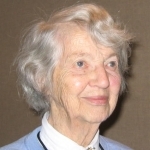 (HOST) Writer and historian Edith Hunter notes how founding father Thomas Jefferson took thirty years to get around to a project dear to his heart.
(HOST) Writer and historian Edith Hunter notes how founding father Thomas Jefferson took thirty years to get around to a project dear to his heart.
(HUNTER) Thomas Jefferson was a most remarkable man. He loved music, architecture, science, and gardening, and was a master of them all. In addition, he was a most religious man and a theologian. He believed that what a man believed was a matter between himself and his Maker. However, he did share his beliefs in his correspondence with two friends, Dr. Benjamin Rush and Dr. Joseph Priestly. It was said of these two intelligent and learned men that they "…helped to reestablish Christianity as a viable option for reasonable and enlightened men of their day."
In 1790, while corresponding with Dr. Rush, Jefferson wrote that someday he would write down his views on Christianity. He wrote that he was opposed to the corruptions of Christianity but not to the genuine precepts of Jesus himself. He was sincerely interested in the religion of Jesus, not in the religion about Jesus.
He planned to go through the four gospels of Matthew, Mark, Luke and John, and extract what he believed were the genuine sayings of Jesus, leaving behind what he felt were the additions of Jesus’ "unlettered" followers. He would "…separate the diamonds from the dross." Jefferson believed that Jesus was seeking to purify the beliefs of the Jews of his own day. The result, according to Jefferson, was "…a system of the most sublime morality which has ever fallen from the lips of man."
But Thomas Jefferson was a busy man. And so he kept putting off the preparation of the document that he had promised Dr. Rush.
In 1803, in correspondence with his friend Dr. Priestley, Jefferson suggested that perhaps Dr. Priestly could write the little book that he had hoped to put together about Jesus and the Gospels. Unfortunately, Priestly died the next year.
Years passed. In 1813 Dr. Rush died, but in that same year Jefferson and John Adams resumed corresponding, after years of hard feelings between them. Adams also shared Jefferson’s religious philosophy, and he knew of Jefferson’s planned editing of the Gospels. He urged him to resume the project.
But it was not until 1820, when Jefferson was seventy-seven years old, that he again attacked the project. He took English, Greek, Latin and French versions of the Gospels, extracted the passages that he felt were genuinely those reflecting the thought of Jesus, pasted them alongside one another in the blank pages of a copy book, and created the Jefferson Bible, "The Life and Morals of Jesus of Nazareth, extracted textually from the Gospels in Greek, Latin, French & English." It makes interesting reading.